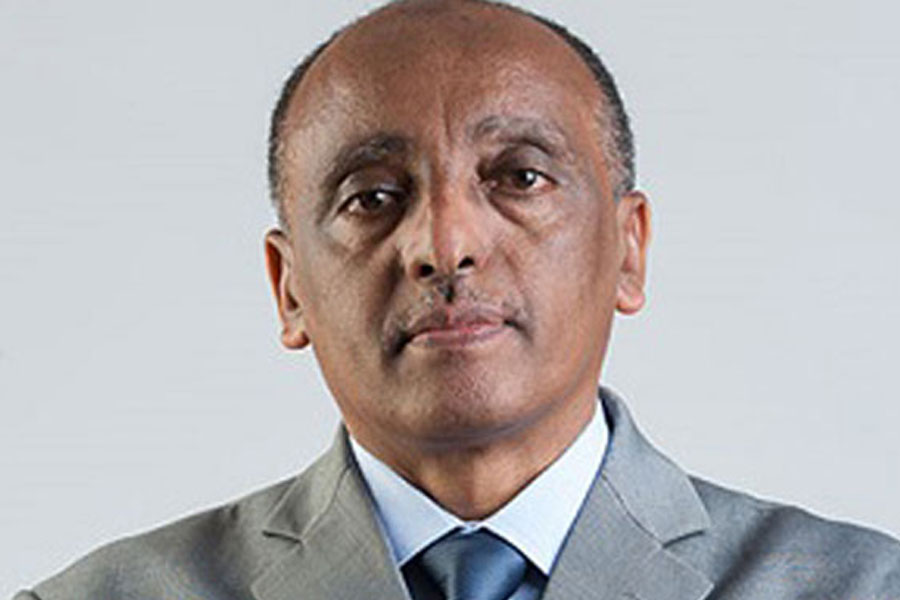
Aug 5 , 2023
By Zainab Shamsuna Ahmed
If the COVID-19 pandemic demonstrated our interdependence and hyper-connectedness, Russia's war in Ukraine and its economic consequences have further underscored that no country or region can stand alone. We are all integrated – politically and by trade and investment linkages – into the global economy.
Given the growing awareness, policymakers worldwide are rethinking their approach to sustainable development and re-examining the role of multilateral development banks (MDBs). These institutions are, of course, still relevant. But whether they are fit for purpose in their current form is open to debate. To determine how these banks can best support developing countries, let us consider the difficulties facing Nigeria, where I served as minister of finance, budget, and national planning from 2019 until this year.
During the pandemic, more of our citizens were pushed into poverty, and our economy faltered. The breakdown in global supply chains caused the price of crude oil, our largest export product, to crash, tipping Africa's largest economy into recession. The economy rebounded after a series of reforms, but Russia's war in Ukraine now confronts us with higher food, oil, and fertilizer prices.
Nigeria is also dealing with fiscal stress, exacerbated by historically low and non-oil revenues and adverse global economic conditions. A significant portion of the country's revenues goes toward servicing its debt, and rising interest rates are pushing up debt-service costs further. Against this backdrop, our biggest challenge is getting the economy back on track and ensuring our citizens live dignified lives.
Multilateral development banks, including the World Bank and the International Monetary Fund (IMF), were created in the aftermath of World War II to help alleviate poverty and promote economic growth in developing countries. Seven decades later, these institutions have duly provided financial assistance and met some development metrics. But the world is still battling poverty, disease, and hunger.
The leaders of the World Bank and other MDBs must pursue systemic reforms to fulfill their mandate. The banks have played an important role in low- and middle-income countries and will continue to do so. But we must now face the reality that outdated solutions cannot fix today's problems. The current geopolitical climate, and the resulting economic and financial conditions, call for a fundamental shift in these institutions so that they are better positioned to respond to multiple overlapping crises.
Clearly, African countries are seeking development partnerships, not handouts or aid.
In Nigeria, we have requested longer-term financing from MDBs to weather the current storm. These banks could also facilitate partnerships between private investors and local African businesses to boost economic growth and job creation. Nigeria has already shown remarkable resilience; now, it needs support to translate its economic potential into meaningful development that benefits its citizens.
African countries must work with the global community to lift the continent out of poverty. But they should also focus on leveraging their abundant resources and young and dynamic populations. One avenue we are already pursuing is promoting intra-African trade through the African Continental Free Trade Area (AfCFTA). With over one billion people, Africa can be its market – but only if trade barriers are removed.
Nigeria, for example, could unlock its manufacturing and export capacity, earning foreign exchange, attracting investment, and becoming more globally competitive. AfCFTA provides a forum for Nigerian entrepreneurs to strengthen partnerships with business owners in other countries.
With the right investments and economic policies, Africa can and will overcome its challenges. Doing so is crucial not just for its own survival, but for the healthy functioning of an interdependent global economy. A string of crises – from the pandemic to the Ukraine war to the intensifying effects of climate change – has highlighted the MDBs' shortcomings while simultaneously prompting calls for reform. Unless we build on the momentum generated by these disasters, they will engulf us all.
This article is provided by Project Syndicate (PS).
PUBLISHED ON
Aug 05,2023 [ VOL
24 , NO
1214]


Fortune News | Apr 24,2021

Sunday with Eden | Jul 20,2019

Fortune News | Jun 25,2022

Radar | Jan 07,2023

Commentaries | May 10,2025

Viewpoints | May 04,2025

Commentaries | Oct 05,2019

Radar |

Advertorials | Jul 03,2019

Commentaries | Dec 19,2021

My Opinion | 131451 Views | Aug 14,2021

My Opinion | 127803 Views | Aug 21,2021

My Opinion | 125783 Views | Sep 10,2021

My Opinion | 123419 Views | Aug 07,2021

Dec 22 , 2024 . By TIZITA SHEWAFERAW
Charged with transforming colossal state-owned enterprises into modern and competitiv...

Aug 18 , 2024 . By AKSAH ITALO
Although predictable Yonas Zerihun's job in the ride-hailing service is not immune to...

Jul 28 , 2024 . By TIZITA SHEWAFERAW
Unhabitual, perhaps too many, Samuel Gebreyohannes, 38, used to occasionally enjoy a couple of beers at breakfast. However, he recently swit...

Jul 13 , 2024 . By AKSAH ITALO
Investors who rely on tractors, trucks, and field vehicles for commuting, transporting commodities, and f...

Jun 28 , 2025
Meseret Damtie, the assertive auditor general, has never been shy about naming names...

Jun 21 , 2025
A well-worn adage says, “Budget is not destiny, but it is direction.” Examining t...

Jun 14 , 2025
Yet again, the Horn of Africa is bracing for trouble. A region already frayed by wars...

Jun 7 , 2025
Few promises shine brighter in Addis Abeba than the pledge of a roof for every family...

Jun 29 , 2025
Addis Abeba's first rains have coincided with a sweeping rise in private school tuition, prompting the city's education...

Jun 29 , 2025 . By BEZAWIT HULUAGER
Central Bank Governor Mamo Mihretu claimed a bold reconfiguration of monetary policy...

Jun 29 , 2025 . By BEZAWIT HULUAGER
The federal government is betting on a sweeping overhaul of the driver licensing regi...

Jun 29 , 2025 . By NAHOM AYELE
Gadaa Bank has listed 1.2 million shares on the Ethiopian Securities Exchange (ESX),...